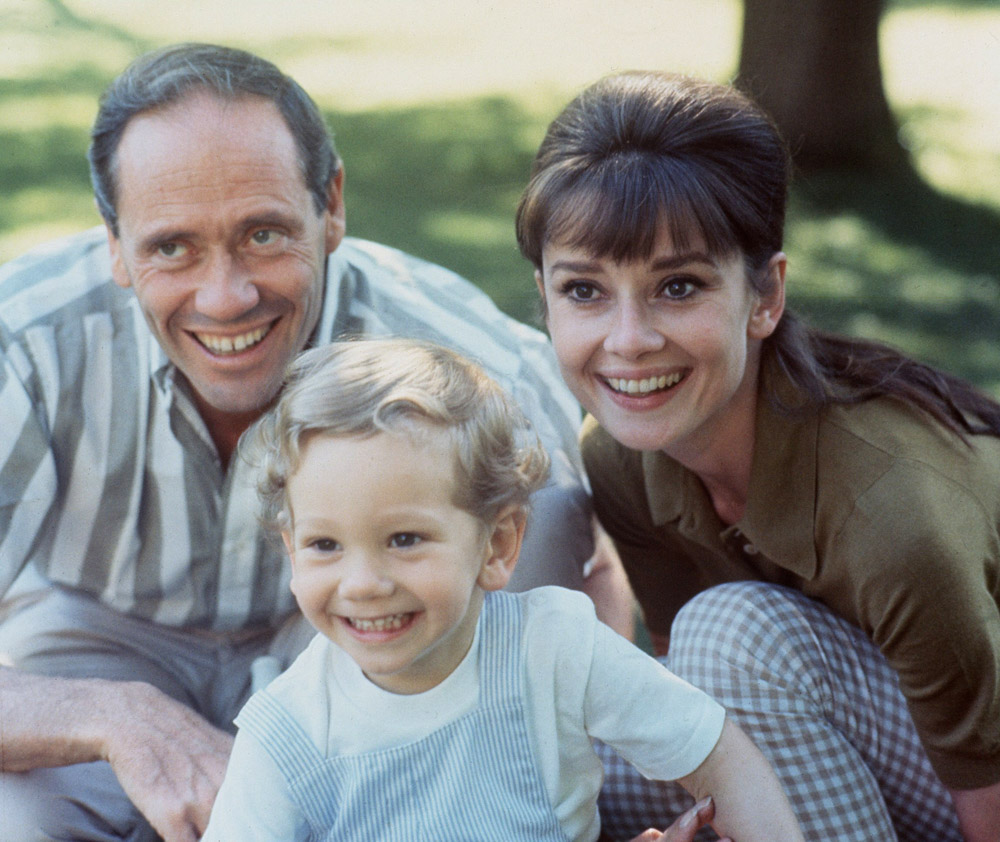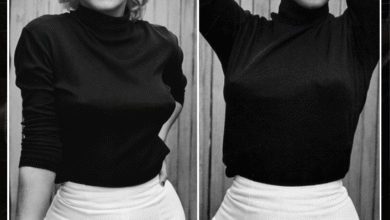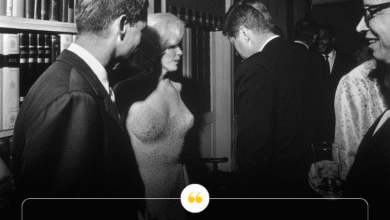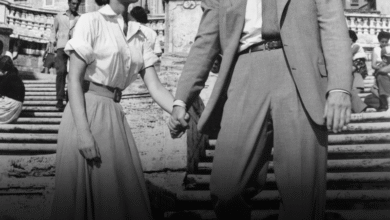The Untold Story of Audrey Hepburn’s Family Life—How She Balanced Fame, Motherhood, and a Global Legacy!
OPINION: This article may contain commentary which reflects the author's opinion.
Audrey Hepburn, an enduring icon of both film and fashion, achieved global fame with roles in classics like Roman Holiday (1953), Breakfast at Tiffany’s (1961), and My Fair Lady (1964). However, beyond her accolades and public persona, Hepburn’s most notable role might have been that of a mother—a role she approached with as much grace and devotion as her career. The way Hepburn balanced the pressures of a high-profile career with the responsibilities of motherhood offers an inspiring example of prioritizing family while still maintaining a public presence. This analysis delves into how Hepburn achieved this delicate balance, using both strategic life choices and personal priorities to navigate the complexities of her dual roles.
Early Life and Career Context
Audrey Hepburn’s career began in earnest in the early 1950s, and her breakthrough role in Roman Holiday not only won her an Academy Award but cemented her place as one of Hollywood’s most beloved stars. Over the next decade, Hepburn became known for her elegant roles in films like Sabrina (1954) and Funny Face (1957), before taking on some of her most iconic roles in Breakfast at Tiffany’s and My Fair Lady.

However, as Hepburn’s career reached its peak, so did her personal life. She was married twice: first to actor Mel Ferrer, with whom she had son Sean Hepburn Ferrer in 1960, and later to Italian psychiatrist Andrea Dotti, with whom she had a second son, Luca Dotti, in 1970. Hepburn’s success in Hollywood, however, was eventually overshadowed by her growing focus on family life, particularly after the birth of her children.
Prioritizing Family: The Move to Switzerland
One of the most significant steps Hepburn took to balance her career with motherhood was relocating her family to Switzerland. As detailed in an article on SheKnows, Hepburn made this decision to provide her children with a normal childhood, far removed from the intense scrutiny of the entertainment industry. This was a bold move, as many celebrities at the time prioritized their careers over family life. However, Hepburn’s decision reflected her deep commitment to her children and her desire to shield them from the pressures she had faced in the spotlight.
This move set a precedent for other high-profile stars, such as Julia Roberts, Nicole Kidman, and Blake Shelton, who later chose to give their families a similar sense of privacy and stability. Hepburn’s son Sean, who grew up in Switzerland, has often spoken about the impact this decision had on his upbringing, noting how it allowed him to experience a more grounded and less intrusive childhood.
A Career Pause for Motherhood
After the birth of Sean, Hepburn made a conscious choice to take a break from acting. She did not appear in films for nearly a decade, returning in 1976 to star opposite Sean Connery in Robin and Marian. This career pause was not due to a lack of interest in her craft, but rather a reflection of her decision to focus on her family. Hepburn herself explained this choice in an interview with The Guardian, stating, “I don’t want to be made to sound virtuous. It was a very knowing and, if you like, selfish decision. It was what made me happy, to stay at home with my children. It wasn’t a sacrifice because I felt I wanted to stay home.”
Her son Sean has since spoken about how he felt responsible for this break, suggesting that Hepburn’s career could have continued at a high level if she had kept working. However, Hepburn’s priorities were clear: she found deep personal fulfillment in being present for her children during their formative years, a decision that highlighted her unwavering commitment to motherhood.
Later Years: Balancing Humanitarian Work with Family
In her later years, Hepburn found a new way to balance professional responsibilities with her family life. At the age of 58, after a period of personal reflection, she began a new chapter as a UNICEF Goodwill Ambassador. Hepburn embarked on humanitarian missions to famine-stricken Ethiopia and Somalia, showing a side of her that was just as determined and fearless as her onscreen persona.
Her son Luca, in the foreword to the book Warrior by Robert Matzen, described his mother as a “badass,” highlighting not just her elegance and beauty but her strength in balancing her humanitarian efforts with the demands of motherhood. Hepburn’s role as a mother did not end with her children’s adolescence; her caregiving and nurturing instincts extended far beyond her own family, as she dedicated herself to the welfare of children around the world.
Her later humanitarian work demonstrated how she could blend her desire to make a difference with her commitment to her family, proving that her role as a mother was the driving force behind her continued advocacy and public endeavors.
Personal Challenges and Influences
Hepburn’s decision to prioritize motherhood over career advancement was also shaped by her own personal experiences. As noted in Sean Hepburn Ferrer’s book Little Audrey’s Daydream, Hepburn experienced several miscarriages before the birth of Sean, which had a profound emotional impact on her. Additionally, her childhood, marked by the hardships of the Dutch famine during World War II and a strained relationship with her mother, likely influenced her desire to create a nurturing environment for her own children.
Hepburn’s own desire to be a loving mother was a driving force behind many of her career choices, and this commitment to family shaped both her professional decisions and her personal life. Her background made her all the more determined to pour affection into her children and offer them the stability she had lacked in her own youth.
Conclusion: A Legacy of Balance and Dedication
Audrey Hepburn’s ability to balance motherhood with a successful career in Hollywood was nothing short of remarkable. Through strategic life choices, such as relocating her family to Switzerland and taking a career break after the birth of her children, Hepburn demonstrated that family and career could coexist harmoniously when one made the decision to prioritize what mattered most. Her later humanitarian work further exemplified her ability to blend personal fulfillment with public service, showing that her influence extended far beyond the screen.
Hepburn’s legacy as a mother, an actress, and a humanitarian continues to inspire those who seek to find balance in their own lives, proving that it is possible to pursue both personal and professional fulfillment with grace and conviction.



